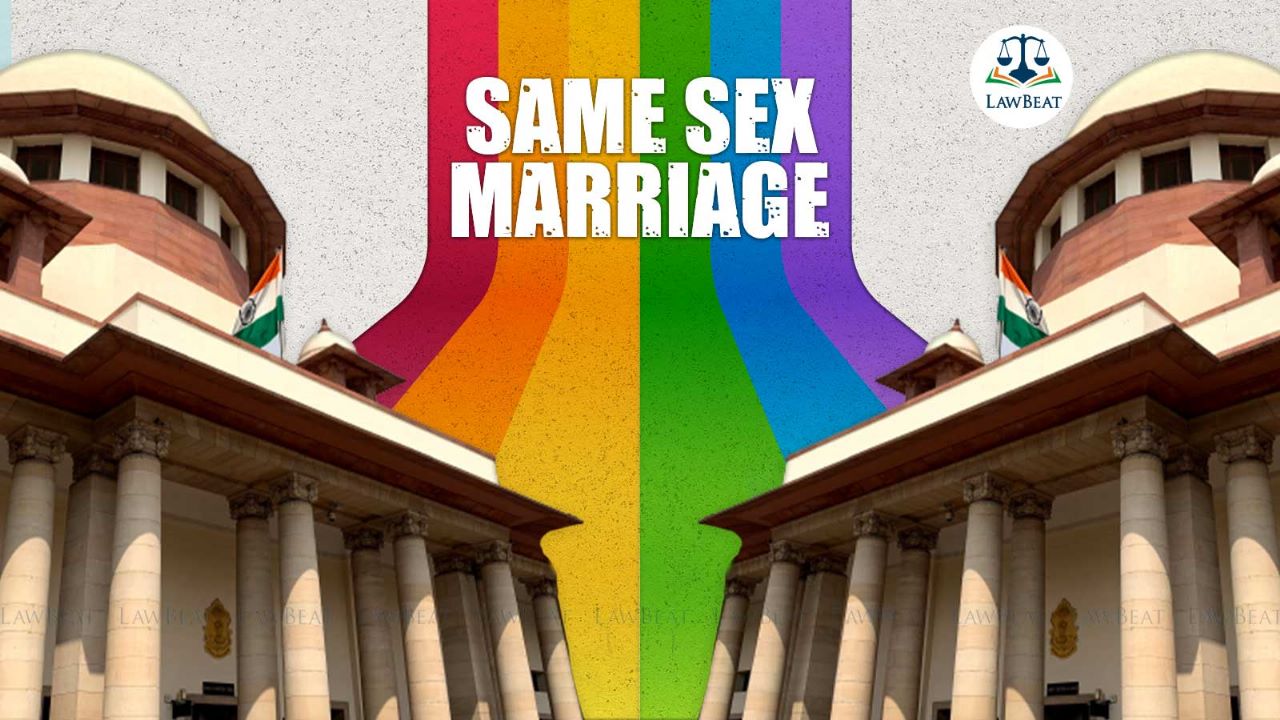Same sex marriage: DCPCR approaches SC seeking intervention; supports marriage equality

While making a case for allowing same sex marriage, it was submitted by the petitioners before the Supreme Court that the Special Marriage Act was ultra vires the Constitution of India to the extent that it discriminated between same sex couples as opposed to opposite sex couples denying same-sex couples both legal rights as well the social recognition and status that flow from marriage.
The Delhi Commission for the Protection Of Child Rights (DCPCR) has filed an intervention application in the petition seeking recognition for same-sex marriages under various statutory enactments such as the Special Marriage Act, the Foreign Marriage Act, the Hindu Marriage Act, and others.
Earlier last month, the Supreme Court had ordered that the pleas seeking recognition for same sex marriage shall be heard by a five-judge Constitution bench on April 18 for final disposal.
Referring to the questions raised by Solicitor General Tushar Mehta in one of the hearings in the case, relating to the potential impact of the legalisation of same-sex marriages on issues around adoption rights, the DCPCR has submitted that the rights of same-sex couples to marry and constitute a family has a direct bearing upon the rights of children who may become members of such families.
Court has been further told that since the officials working under the Commission have a total of 15 years of collective experience in dealing with issues pertaining child rights they will be able to assist the Court to adjudicate upon these issues.
"...from a psychological point of view, multiple studies on same-sex parenting have demonstrated that same sex couples can be good parents, or not, in the same manner that heterosexual parents can be a good parent or not. The same sex couples do not have any advantage or disadvantage with respect to being good or poor at parenting when compared to heterosexual couples. The relevant aspects in determining whether a couple can be good at parenting or not are, instead, the capacity for caring and the quality of the relationship between parent and child", the application submits.
DCPCR has added that there is no evidence or empirical data to show that same-sex couples are unfit to be parents or that psychosocial development among children of same-sex couples is compromised relative to that among offspring of heterosexual parents.
Application adds that the impact of the legalisation of same-sex marriages upon gendered language used in other statutes do not present any serious concern.
Last week, Jamait Ulama-I-Hind had filed an intervention application in the plea before Supreme Court seeking recognition of same-sex marriage stating that recognition of marriage is on the basis of established and sustainable societal norms and shall not keep changing on the basis of variable notions based upon newly developed value system emerging from a different worldview in a different paradigm.
The IA submits that the petitioners are seeking to dilute the concept of marriage, a stable institution, by introducing a free-floating system of "same-sex marriage‟.
On the aspect of religion and personal laws, the plea states that any person who questions the well-established norms of a religion or demands the creation of a non-existing space within the religious norms and its teachings is in fact seeking to amend the religious norms.
Referring to the Quran, the application states that a study of the Islamic paradigm qua gender and sexuality in Islamic law and theology reflects a clear and fixed principle of only two genders (biological).
Importantly, the Central Government had recently filed an affidavit before the Supreme Court opposing the demand for legal recognition of same-sex marriages in India.
Citing the ‘nature of the concept of marriage’, the affidavit stated that the notion of marriage itself necessarily and inevitably presupposes a union between two persons of the “opposite sex”.
It was further stated that: “Depending upon the personal laws applicable, the nature of marriage as an institution is different. Among Hindus, it is a sacrament, a holy union for the performance of reciprocal duties between a man and a woman. In Muslims, it is a contract but again is envisaged only between a biological man and a biological woman. It will, therefore, not be permissible to pray for a writ of this Hon’ble Court to change the entire legislative policy of the country deeply embedded in religious and societal norms”.
On January 6, the Supreme Court had ordered to transfer of all pleas pending before various high courts seeking recognition for same-sex marriage to itself.
In November last year, the Supreme Court issued notice in the instant plea moved by a gay couple seeking legal recognition of same-sex marriage under the Special Marriage Act, of 1954.
Senior Advocate Mukul Rohatgi appearing on behalf of the petitioner-couple had then submitted before a bench comprising CJI Chandrachud and Justice Hima Kohli that the issue was a sequel to Navtej Singh Johar's judgment.
It is the petitioner's case that the right to marry a person of one's choice is a fundamental right guaranteed under the Constitution of India to each "person" and has been recognized explicitly by the Supreme Court as well.
Case Title: Supriyo@ Supriya Chakraborthy v. Union of India & Anr. (a batch of petitions)
